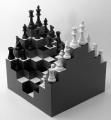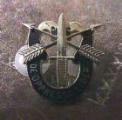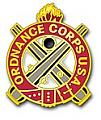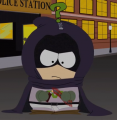LAGOS, Nigeria, Jan. 18 (UPI) -- A trial in Nigeria at the end of the month is expected to expose details of an Iranian arms smuggling operation in Africa run by the Revolutionary Guards' clandestine arm, the al-Quds Force.
An Iranian, Azim Aghajani, identified by Nigerian authorities as a senior officer in the al-Quds Force, faces charges of smuggling 13 shipping containers loaded with weapons and ammunition that were uncovered Oct. 26 at the port of Lagos.
He was charged Nov. 25 along with three Nigerians for importing and attempting to export arms.
A second Iranian sought by the Nigerians, Ali Akbar Tabatabaei, listed as the commander of al-Quds Force operations in Africa, claimed diplomatic immunity when the arms were discovered.
He took refuge in the Nigerian Embassy in Abuja. He was flown to Tehran with Iranian Foreign Minister, Manuchehr Mottaki, who had made an emergency trip to Nigeria in November to soothe the diplomatic standoff triggered by the scandal.



 : The death toll from a series of Christmas Eve blasts in central Nigeria has risen to 32, the police commissioner said Saturday, while attributing the explosions to attacks with homemade devices.
: The death toll from a series of Christmas Eve blasts in central Nigeria has risen to 32, the police commissioner said Saturday, while attributing the explosions to attacks with homemade devices.






 ). Having personally reported on the blood diamonds and trade for weapons in Angola, I can safely say we are either all walking around with blinders on, or, we are ignoring our “minuscule” role (such as then support to UNITA and wealthy oil multinationals).
). Having personally reported on the blood diamonds and trade for weapons in Angola, I can safely say we are either all walking around with blinders on, or, we are ignoring our “minuscule” role (such as then support to UNITA and wealthy oil multinationals).




Bookmarks